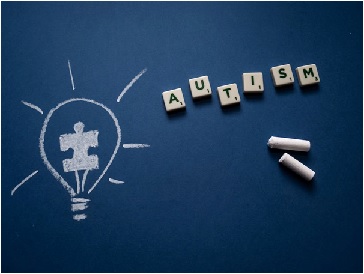TOPIC-Raising Awareness, Changing Lives: Identifying Early Signs of Autism
Autism is a neurodevelopmental disorder characterized by difficulties with communication, social interaction, and behaviour. It is distinguished by a wide range of symptoms and behaviours that vary greatly between individuals. Some autistic people have difficulty with social interactions and communication, while others engage in repetitive behaviours or have a strong interest in certain topics.

The symptoms of autism can range from mild to severe and can appear in early childhood. Here are some of the early signs and symptoms of autism that parents or caregivers should look out for:
Lack of social interaction: Children with autism may not respond to their names or make eye contact with others. They may also avoid social interactions or seem to prefer playing alone.
Delayed language development: Children with autism may have delayed speech and language skills or may not speak at all. They may also repeat words or phrases (echolalia) or have difficulty understanding language.
Repetitive behaviours: Children with autism may engage in repetitive behaviours such as hand flapping, rocking, or spinning objects. They may also have a strict adherence to routines or have difficulty adapting to changes in their environment.
Sensory sensitivities: Children with autism may be oversensitive or under-sensitive to sensory stimuli such as sound, light, touch, or taste.
If you notice any of these early signs and symptoms in your child, it is essential to speak with your healthcare provider. They can refer you to a specialist who can conduct a comprehensive evaluation to determine if your child has autism.
Early intervention is critical for autistic children. Early intervention services can assist autistic children in developing communication, social, and behavioural skills. Early intervention services for autistic children include speech therapy, occupational therapy, and applied behaviour analysis (ABA) therapy.
Early diagnosis and intervention are critical for children with autism, as research has shown that early intervention can significantly improve outcomes for children with autism.
In many cases, people with autism can have unique strengths and abilities that can make them valuable employees. However, they may also face challenges in the workplace, such as difficulties with social interactions, sensory sensitivities, and communication barriers. Employers need to understand these challenges and make accommodations to support their employees with autism.
If you notice any of the early signs and symptoms of autism in your child, it is essential to speak with your healthcare provider. With early intervention and support, children with autism can lead fulfilling and productive lives.
